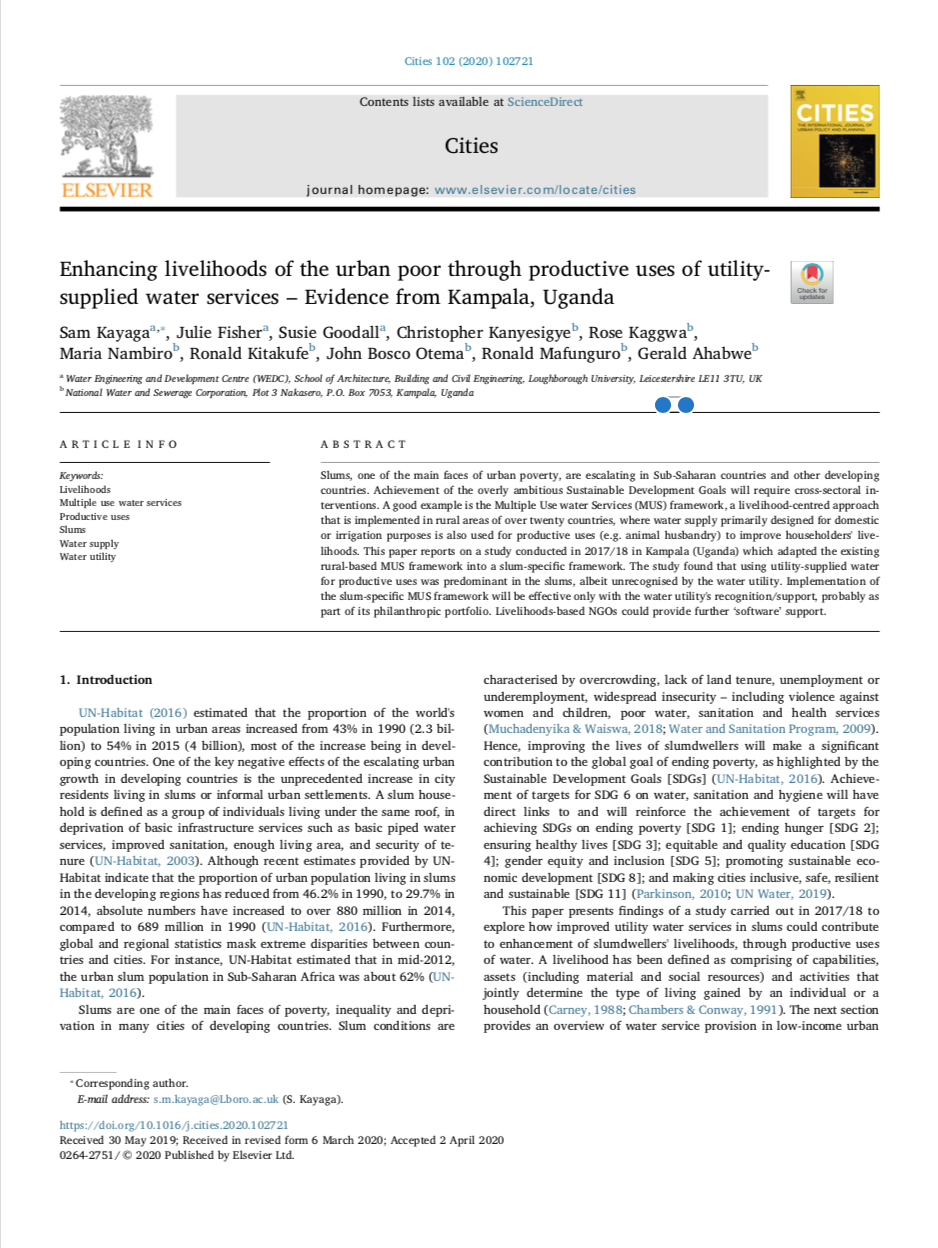Authors: Sam Kayaga, Julie Fisher, Susie Goodall, Christopher Kanyesigye, Rose Kaggwa, Maria Nambiro, Ronald Kitakufe, John Bosco Otema, Ronald Mafunguro, Gerald Ahabwe
Slums, one of the main faces of urban poverty, are escalating in Sub-Saharan countries and other developing countries. Achievement of the overly ambitious Sustainable Development Goals will require cross-sectoral interventions. A good example is the Multiple Use water Services (MUS) framework, a livelihood-centred approach that is implemented in rural areas of over twenty countries, where water supply primarily designed for domestic or irrigation purposes is also used for productive uses (e.g. animal husbandry) to improve householders’ livelihoods. This paper reports on a study conducted in 2017/18 in Kampala (Uganda) which adapted the existing rural-based MUS framework into a slum-specific framework.

